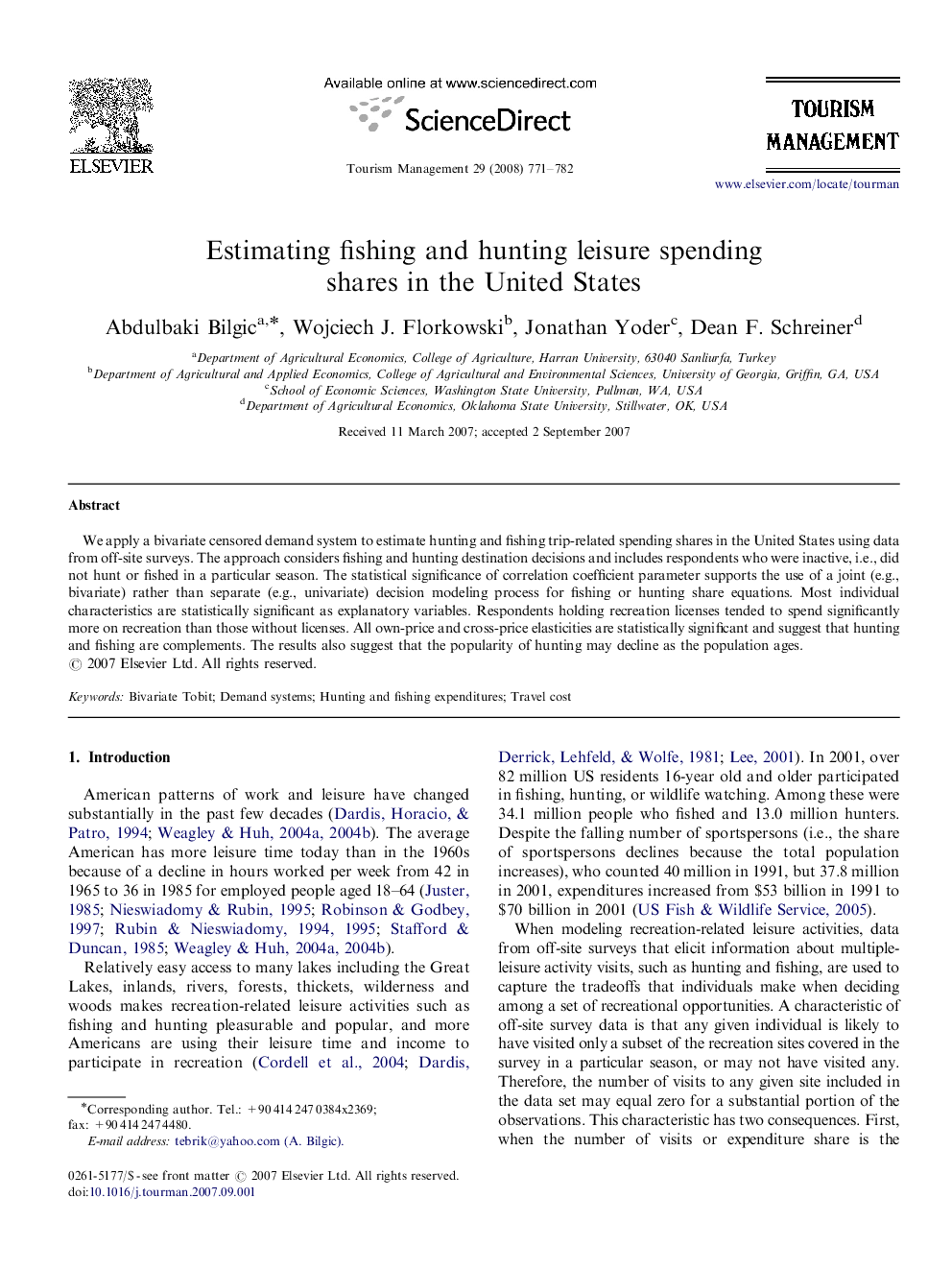| Article ID | Journal | Published Year | Pages | File Type |
|---|---|---|---|---|
| 1013030 | Tourism Management | 2008 | 12 Pages |
We apply a bivariate censored demand system to estimate hunting and fishing trip-related spending shares in the United States using data from off-site surveys. The approach considers fishing and hunting destination decisions and includes respondents who were inactive, i.e., did not hunt or fished in a particular season. The statistical significance of correlation coefficient parameter supports the use of a joint (e.g., bivariate) rather than separate (e.g., univariate) decision modeling process for fishing or hunting share equations. Most individual characteristics are statistically significant as explanatory variables. Respondents holding recreation licenses tended to spend significantly more on recreation than those without licenses. All own-price and cross-price elasticities are statistically significant and suggest that hunting and fishing are complements. The results also suggest that the popularity of hunting may decline as the population ages.
